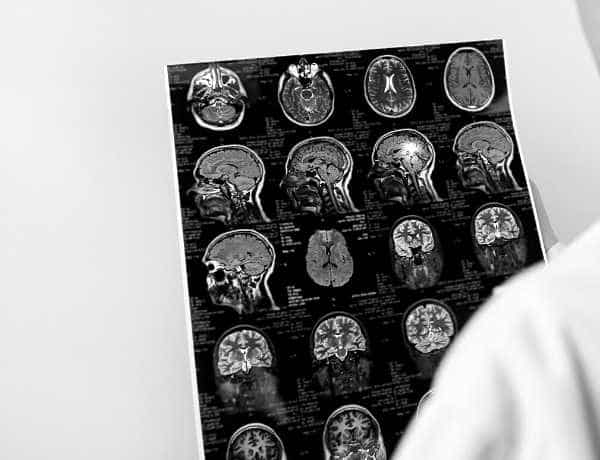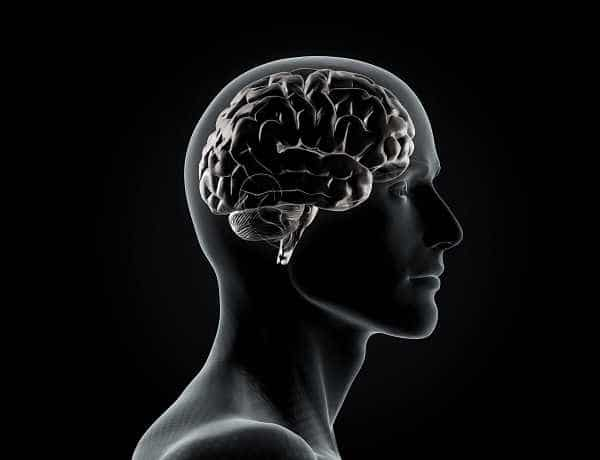Free Consultation - Call Now:
Free Consultation - Call Now:

March is Brain Injury Awareness Month, and Heintz Law knows the severe effects of traumatic brain injuries (TBIs). Increasing TBI awareness and comprehending these types of injuries may be beneficial. If someone's carelessness caused a TBI, compensation might be available. Contact our law firm today to speak with a personal injury lawyer.
A brain injury is an acquired damage to the brain caused by physical trauma, such as a blow to the head or chemicals entering the brain. It can result in changes in:

Several different factors cause brain injuries. Still, some of the most common causes include:
Car accidents can cause brain injuries due to the force of impact that occurs when a person's head collides with another object or an interior vehicle surface. This can result in traumatic brain injury (TBI), which is a type of physical injury to the brain caused by a sudden, violent impact on your head.
Assault can cause brain injury through physical head trauma or shaken baby syndrome. This trauma can disrupt the brain's normal functions, leading to short-term:
Sports can cause brain injury when the head experiences a sudden, forceful blow due to contact with another player, object, or surface. These injuries can damage the brain's neurons and cause chemical changes that interfere with brain functioning.
Military Service can cause brain injury due to the explosions and shockwaves associated with battle. These blasts can result in a traumatic brain injury (TBI), which can have long-term repercussions, including memory loss and reduced cognitive functioning.
Construction site accidents can cause brain injuries from physical trauma, such as a concussion, blows to the head, or exposure to hazardous materials like chemicals or radionuclides. Additionally, long-term exposure to loud noises, such as those found near construction sites, can cause brain injuries due to auditory damage.
There are three main types of traumatic brain injury(TBI):
A mild traumatic brain injury is when the brain receives damage through a specific incident, such as being hit in the head by another person or falling, but no other body parts are injured. This type of injury damages some areas of the brain and affects how one thinks, feels, learns, or even sleeps.
A moderate TBI is when the brain receives damage from a penetrating injury. Damage to the brain from this type of TBI may result in temporary or permanent disabilities.
A severe TBI is when the brain is injured due to being hit by something, such as a bullet or a car accident. Severe TBI can change how an individual functions. Someone with a severe TBI may be unable to:
It may not seem like it, but traumatic brain injury is a significant cause of death and disability in the United States. The Brain Injury Association of America estimates more than 5 million people live with a permanent brain injury-related disability in the U.S., and about 2.8 million people sustain traumatic brain injuries annually.
The Centers for Disease Control estimated over 64,000 traumatic brain injury-related deaths in the U.S. in 2020. Whether people consciously know about TBI or not, studies indicate a correlation between high TBI awareness and their reduction. Although many cognitive limitations and even death can result from brain injuries, these can all be overcome with TBI awareness, early detection, and treatment of traumatic brain injuries.

On this Brain Injury Awareness Month, we aim to turn the limelight on traumatic brain injury, highlight TBI victims' legal options, and show how a lawyer can help fast-track the treatment and justice they deserve. Let's raise TBI awareness with the following 5 fast facts.
Another reason TBI awareness is so important is that the signs of a TBI are not always obvious. Since TBI changes how the brain acts and processes information, it may initially seem like something is amiss, but often there will be no outward signs of injury. You may have an accident at work or while playing and not even realize it as you continue to function normally until you begin to experience neurological symptoms later on.
Symptoms related to a TBI may include:
A concussion may result from a blow to the head, such as hitting your head against a wall, getting hit in the head, or even shaking your head violently after losing consciousness. Concussions can also occur due to repetitive motion, such as handling something heavy repeatedly or frequent head banging.
Several factors determine the severity of a brain injury. Hard evidence research shows even mild concussions may result in changes in behavior and thinking, such as memory lapses or personality shifts. The severity of the injury depends on where it is located in the brain and other parts of the body connected to it.
Research indicates that people over 75 have the highest traumatic brain injury-related hospitalizations and death rates. Unsurprisingly, the elderly have a higher-than-average risk of TBI since the elderly population has a higher risk of falls, lack of mobility, and arthritis.
On this Brain Injury Awareness month, let's try to mitigate this by taking extra care of our elderly loved ones. Taking them to the doctor more frequently and getting more physical exercise so they can maintain their balance and agility. Also, try removing obstacles to make their paths as safe as possible.
Just over a decade ago, TBI awareness gained popularity, and the use of protective gear increased dramatically. Now it's known that the first line of defense before any impact or fall occurs is to wear a helmet to help keep your head safe.
Most people with a mild TBI can return to everyday life within weeks or months. However, more severe injuries may qualify for a lawsuit. Those suffering from them can seek compensation to cover their:
In the case of a wrongful death or severe injury, acting quickly and contacting a traumatic brain injury lawyer as soon as possible is imperative. You have a limited time to file a lawsuit so talking to an experienced TBI lawyer who can get you the compensation you deserve is critical.
the most common symptoms of a severe brain injury are:
If you suspect you might have a brain injury from a car accident, sporting event, or something else there are some things you can do.
If you think that you have a brain injury, it is essential to seek medical attention immediately. Visit your doctor or an urgent care facility and explain the event or incident that caused the potential injury and any symptoms you are experiencing (e.g., headaches, nausea, dizziness).
If necessary, get a referral to a neurology specialist who can assess the full extent of your injury through tests such as MRI scans or CT scans. Depending on the results of the diagnostic tests, your neurologist may refer you to additional specialists for further treatment and rehabilitation, such as:
Follow all instructions from your healthcare providers closely and keep track of any medications they prescribe to promote healing and manage symptoms.
Stick with a regular sleep schedule and avoid activities that require cognitive effort (e.g., using electronic devices) too close to bedtime.
Eat healthy food that includes plenty of nutrients along with taking recommended supplements (vitamins and minerals). Also, drink lots of water throughout the day to stay hydrated.
Rest when needed and follow an exercise regimen approved by your healthcare provider.
Additionally, try mindfulness techniques such as yoga or meditation, which can help reduce stress levels associated with living with a brain injury .
Maintain social connections with friends and family so that you’re better able to cope emotionally with these difficulties over time.
Brain injuries can lead to long-term effects, such as the following:
As we raise TBI awareness, make sure you keep in mind the long-lasting effects TBis have on people. Be patient, and offer help where needed.
One of the most critical TBI awareness points is the connection between brain injuries and mental health struggles. Traumatic brain injuries (TBIs) can have significant and long-lasting effects on a person's mental health, including:
Brain injuries also increase the risk of developing other mental illnesses like bipolar disorder or schizophrenia. Such disorders can contribute to suicidal thoughts or actions if left untreated. People who suffer from TBIs often experience frustration and distress due to a lack of understanding of their condition by those around them, which can complicate recovery efforts.
While you don't have to get a brain injury lawyer, they are beneficial when someone else's negligence caused the injury. A brain injury lawyer will gather evidence, build your case, advocate for you, and work to reach a fair settlement that will cover all your needs.

If someone else's negligence caused your TBI, it is essential to seek the counsel of a lawyer. An experienced TBI attorney can advise you whether or not you have a strong case. A qualified lawyer can help you determine the proper damages for your injuries and damages, negotiate with insurance companies, and represent you in court.
There are many types of damages you can pursue after a car accident. Some of those are:
Economic damages are losses that arise from an injury or harm to another’s property, business, or finances. Economic damages include:
Non-economic damages are damages in personal injury cases that cannot be quantified or measured. These include:
Punitive damages are legal damages that a court will award to punish the wrongdoer for egregious misconduct or to set an example for other potential violators. They are generally in addition to any other compensatory damages that were awarded.
Special damages, also known as consequential damages, do not occur directly from a breach but are considered a consequence of that breach. They include economic losses such as lost profits or the cost of repair or replacement. They may also have other losses, such as emotional distress due to the breach.
During Brain Injury Awareness Month, raising awareness of traumatic brain injuries (TBIs) and attempting to decrease their occurrence is crucial. However, if someone else's negligence caused you a traumatic brain injury, you may be able to get compensation. Reach out today.
905 6th Avenue West
Bradenton, FL 34205
Phone: 941-748-2916
Fax: 941-746-4281
Map & Directions
Phone: 941-238-0093
Fax: 941-746-4281
Map & Directions
Attorney Advertising | Prior results do not guarantee a similar outcome. The information on this website is for general information purposes only. Nothing on this site should be taken as legal advice for any individual case or situation. This information is not intended to create, and receipt or viewing does not constitute, an attorney-client relationship. This site is protected by reCAPTCHA and the Google Privacy Policy and Terms of Service apply.